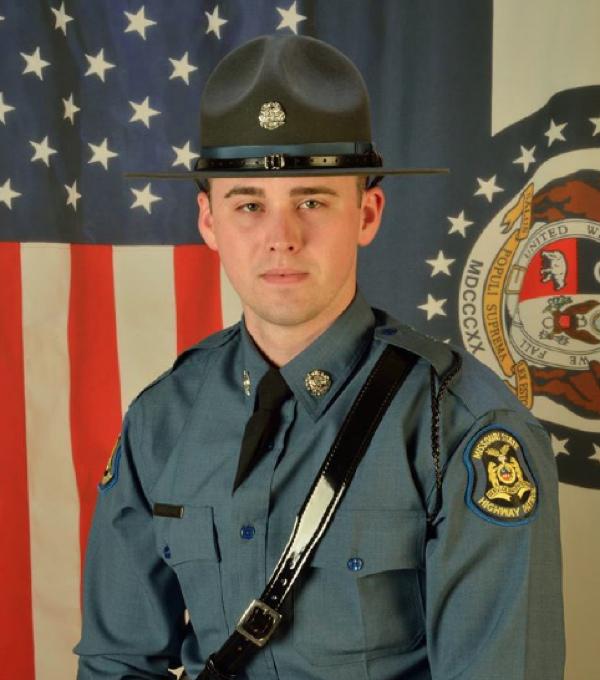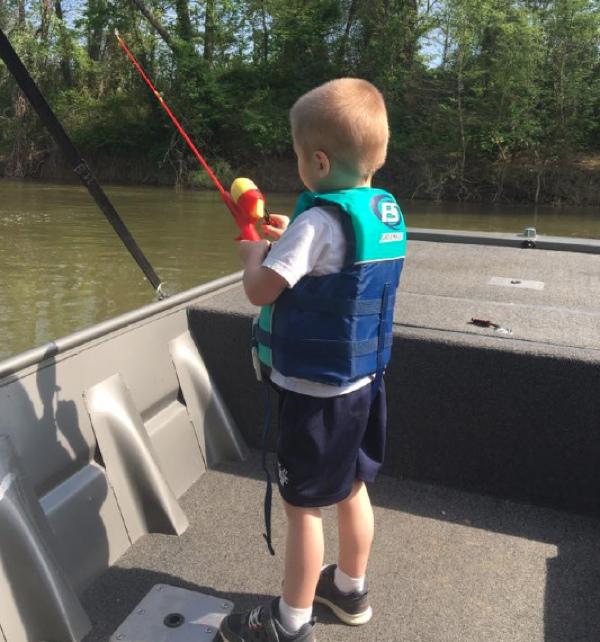
FIREWORKS
Don’t light fireworks in any areas where the sparks could ignite dry grass, leaves, or other potential fire fuel. Always have an approved fire extinguisher and an available water supply to douse sparks or flames. Wet the area around where fireworks are being discharged. Check with local ordinances and authorities for bans on fireworks and open burning.
OUTDOOR BURNING
Don’t burn during wrong conditions. Dry grass, high temperatures, low humidity, and wind make fire nearly impossible to control. Check with local fire departments regarding burn bans that may be in place. A person who starts a fire for any reason is responsible for any damage it may cause.
DRIVING OFF ROAD
Wildfires can start when dry fuel, such as grass, comes in contact with catalytic converters. Think twice before driving into and across a grassy field. Never park over tall, dry grass or piles of leaves that can touch the underside of a vehicle. When driving vehicles off road, regularly inspect the undercarriage to ensure that fuel and brake lines are intact and no oil leaks are apparent. Always carry an approved fire extinguisher on vehicles that are used off road. Check for the presence of spark arresters on ATV exhausts.
MAKING A CAMPFIRE
Clear a generous zone around fire rings. Store unused firewood a good distance from a campfire. Never use gasoline, kerosene, or other flammable liquid to start a fire. Keep campfires small and controllable. Keep fire-extinguishing materials, such as a rake, shovel, and bucket of water, close.
NEVER LEAVE A CAMPFIRE UNATTENDED
Extinguish campfires each night and before leaving camp, even if it’s just for a few moments. Extinguish cigarettes completely and safely and dispose of them responsibly by burning them in a controlled campfire or packing them out.
CALL FOR HELP
Call 911 at the first sign of a fire getting out of control.
REPORT FOREST ARSON
Wildfires are sometimes set by vandals. Help stop arson by calling 800-392-1111 and reporting any potential arson activities. Callers will remain anonymous and rewards are possible.
MANAGED FIRE
Fire used in the wrong way can create disasters. Used in the right way, fire can help create habitat for wildlife. For more information on using prescribed fire as a land-management tool, visit mdc.mo.gov and search “prescribed fire.”
Photo courtesy of Kay Stevenson.

Patrol Commissions 102nd Recruit Class; 26 New Troopers Take Oath Of Office
Colonel J. Bret Johnson, superintendent of the Missouri State Highway Patrol, announces 26 troopers graduated from the Patrol’s Law Enforcement Academy on Friday, June 24, 2016. The ceremony took place at 10 a.m. in the Academy gymnasium. The 102nd Recruit Class reported to the Academy on January 4, 2016. The new troopers report for duty in their assigned troops on July 11, 2016.
Trooper Ryan J. Windham, of Dexter, Missouri, has been assigned to Zone 6, which serves the citizens of Mississippi, New Madrid, and Scott counties. Trooper Windham is a graduate of Dexter High School and holds a Bachelor of Science degree from Southeast Missouri State University in Cape Girardeau, Missouri. Trooper Windham’s field training officer will be Trooper B.A. Pratt.
Governor Jay Nixon provided the keynote address during the June 24 graduation ceremony. Department of Public Safety Director Lane Roberts, and Colonel J. Bret Johnson also addressed the class. The Honorable Mary Rhodes Russell, Missouri Supreme Court, administered the Oath of Office to the new troopers. Dean Gil Kennon, vice president of College Affairs for Mineral Area College, conferred an associate of applied science degree to 10 of the new troopers.
Troop F Color Guard presented and retired the colors. A quartet consisting of Sergeant John H. Lueckenhoff, Troop D, Sergeant Andrew A. Henry, Troop H, Trooper Steven J. Force, Troop H, and Pastor Terry Beasley, of Cameron, MO, sang the national anthem. Rev. Tim Rickman, Assemblies of God, Nixa, MO, provided the invocation and benediction.
Four class awards were presented. The recruits accumulated points toward graduation in the categories of physical fitness, firearms, and academics throughout their 25 weeks at the Academy. The person with the highest number of points in each category earned the respective award. Trooper Dakota K. Fletcher earned the physical fitness award. Trooper Justin C. Jenkins earned the firearms award. Trooper Matthew W. Neely earned the academics award. Trooper Sean P. Ernst accepted the Superintendent's Award, which is presented to the person with the most points overall.
Listed below are the names, hometowns, and first assignments of members of the 102nd Recruit Class:
Ronald K. Adams, Portageville, MO, Troop E, Pemiscot & New Madrid Counties
Geoffrey Beaulieu, Cassville, MO, Troop F, Montgomery County
Caleb M. Elam, Oak Ridge, MO, Troop E, Scott, Mississippi, & New Madrid Counties
Kyle L. Elledge, Newburg, MO, Troop C, St. Francois & Washington Counties
Sean P. Ernst, Columbia, MO, Troop F, Boone County
William W. Fair, Chicago, IL, Troop I, Phelps & Maries Counties
Aaron W. Ferguson, Warrensburg, MO, Troop A, Ray & Carroll Counties
Dakota K. Fletcher, Hamilton, MO, Troop A, Clay County
Tyler C. Fuller, Macon, MO, Troop B, Marion & Ralls Counties
Samuel R. Glass, Springfield, MO, Troop D, McDonald & Newton Counties
Justin C. Jenkins, Mineral Point, MO, Troop C, Ste. Geneveieve & Perry Counties
Brandon G. Katzing, Sedalia, MO, Troop A, Benton County
Robert P. Mahoney Jr., Arnold, MO, Troop C, Ste. Genevieve & Perry Counties
Justin K. Marlin, Osage Beach, MO, Troop A, Benton County
Corey T. Morgan, Columbia, MO, Troop G, Carter & Reynolds Counties
Matthew W. Neely. Cameron, MO, Troop H, Daviess & DeKalb Counties
Catlynn E. Newbold, Columbia, MO, Troop F, Camden County
Andrew C. Rickman, Battlefield, MO, Troop D, Stone & Taney Counties
Mark D. Ritter, St. Robert, MO, Troop I, Phelps & Maries Counties
Kaven D. Roney, Farmington, MO, Troop C, St. Francois & Washington Counties
Jeremy D. Sanders, Cuba, MO, Troop C, St. Francois & Washington Counties
Nelson R. Saucedo, Valley Park, MO, Troop C, Warren County
Joseph C. Southwood, Columbia, MO, Troop I, Laclede Counties
Braiden D. Vaught, Springfield, MO, Troop D, Jasper County
Brodie P. Waaso, Cottleville, MO, Troop C, St. Charles County
Ryan J. Windham, Dexter, MO, Troop E, Scott, Mississippi, & New Madrid Counties
Photo credit to 1370 KCRV News Media-Radio Advertising
1370 KCRV News Media-Radio Advertising

Colonel J. Bret Johnson, superintendent of the Missouri State Highway Patrol reminds the general public of the importance of water safety during the extremely hot weather. The heat causes people to gravitate toward all kinds of waterways, public and private. Even those who are weak swimmers, including small children, may enter waterways to get relief, so taking the proper precautions is paramount.
Drownings do not typically occur as dramatized on television. Drownings occur quickly and in many cases, the drowning itself is not actually witnessed. The victim is there one minute and gone the next. Life jackets are an important part of drowning prevention, whether boating or simply swimming from the shoreline or a dock. It is imperative for children to be instilled with the habit of wearing a life jacket whenever they are around the water. State law requires children under seven to wear a life jacket while on a watercraft, but that is only a minimum requirement. Life jackets clearly benefit persons of all ages.
It is common for teens and even adults to overestimate their swimming ability, so even if a person chooses not to wear a life jacket, keeping a life jacket or other adequate flotation within reach is imperative. It is difficult to judge distance on the water, so what appears to be a short swim across a pond, lake, or river may actually be further than you think. The current on rivers may also extend your swim beyond your abilities. Panicking is a key component of drowning. The best way to avoid panic is to be prepared around the water. Once the struggle to stay afloat begins, it may be too late to retrieve a flotation device. Clearly, the best practice is to wear a life jacket.
As we get into what is typically the hottest weather of the year, help ensure you don't become a drowning victim. Make sure you and your loved ones are prepared when they hit the water.
Watercraft operators must consider the effect their actions have on others: Share the waterway and use common sense, good judgment, and courtesy to ensure the safety of all. Life jackets save lives. Wear It!!
Shown in the photo is Camden Stone swimming at Lake Wappapello, 2-year old son of David and Laura Stone of Dexter, Missouri.

Annual cicadas have dark eyes and greenish bodies, unlike the slightly smaller periodicals which have red eyes and blackish bodies.
After spending two-to-five years underground feeding on root juices, the annual cicada nymphs emerge and begin the search for mates using their raspy hum.
The cicada’s endless drone seems to come from everywhere. Cicadas emit a sound that can reach up to 95 decibels, depending on proximity. That is the equivalent noise level of a Boeing 737 before landing.
Unlike crickets rubbing together parts of their wings to create a chirp, male cicadas rapidly vibrate a piece of their exoskeleton to produce their loud call.
Despite the mild sound annoyance cicadas induce, the insect is a valuable food source for wildlife such as birds and other insects. In other countries it’s common for people to chow down on the meaty bug due to its predictable emergence in the summer. Cicadas pose no threat to people and minimal threats to trees.
While Missouri doesn’t have to worry about a large periodical cicada invasion this summer, states toward the east such as Ohio and West Virginia are dealing with a 17-year brood. The next 13-year periodical will not make an appearance in Missouri until 2024.

Missouri - Colonel J. Bret Johnson, superintendent of the Missouri State Highway Patrol, announces the Patrol's participation in Operation Dry Water. Operation Dry Water is a national campaign in which marine law enforcement officers from across the country coordinate special patrols during the last weekend in June to keep our waterways safe from boaters operating under the influence of alcohol or drugs. Troopers will focus their efforts over the weekend of June 24-26, 2016, to detect and apprehend impaired operators.
Missouri boat operators found to have a blood alcohol content of .08% or greater will be arrested for boating while intoxicated. Intoxicated boat operators endanger themselves, their passengers, and other boaters utilizing our many waterways.
Last year, 582 local, state, and federal agencies participated in a weekend long event of heightened BWI enforcement known as Operation Dry Water. Officers removed 278 intoxicated boat operators from the water. In addition, law enforcement officers made contact with over 125,087 boaters concerning BWI or boating safety enforcement and awareness. From 2010 to 2015, over 1,870 BWI operators have been removed from the water by law enforcement officers during the Operation Dry Water weekends.
In 2015, during less than desirable boating weather, troopers arrested a total of three people statewide for boating while intoxicated, contacted 543 vessels and 1,531 boaters, and issued 85 boating violation summonses and 588 warnings on Missouri waterways. Marine operations troopers also issued 137 summonses for non-boating violations during the 2015 Operation Dry Water weekend. Special enforcement operations will continue throughout the summer months. Boaters are reminded that designating a sober operator is always the safest bet if alcohol is going to be included in their boating experience.
Watercraft operators must consider the effect their actions have on others: Share the waterway and use common sense, good judgment, and courtesy to ensure the safety of all. Life jackets save lives. Wear It!!
Shown in the photo is Lucas Foster, age 3, son of Matt and Miranda Foster of Puxico, Missouri.












